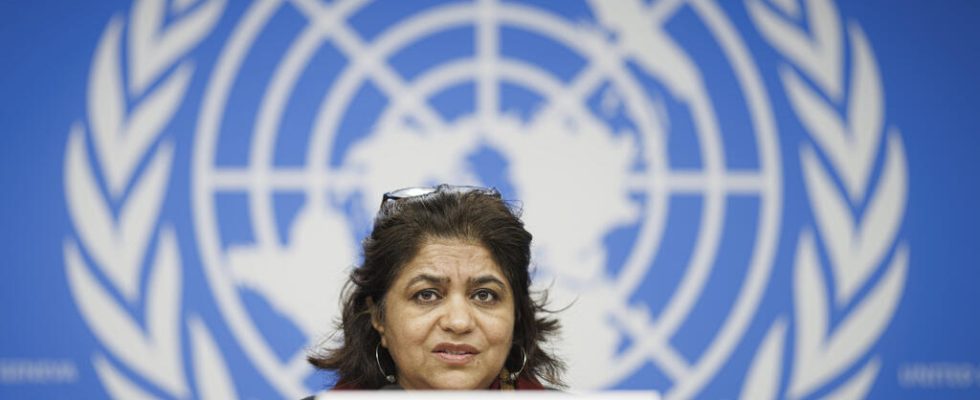“Don’t forget Iran”: this is the call, this March 18, from the commission of inquiry of the UN Human Rights Council, responsible for shedding light on the protest movement born after the death of Mahsa Amini. Iranian authorities are responsible, experts confirm.
2 mins
Torture, forced disappearances, arbitrary executions: the list of abuses by the Iranian security forces is as long as an arm, notes the RFI correspondent in Geneva, Jeremy Lanche. UN-mandated investigators into the human rights situation in Iran estimate that at least 551 protesters have been killed since September 2022, including 68 children. Arrests would number in the tens of thousands.
“ Security forces prevented detainees from contacting their families or lawyers, outside the law. To punish them, humiliate them or extract confessions from them, they often suffered sexual abuse: we speak of rape with objects or gang rape. They were also beaten, flogged or subjected to electric shocks, all acts which could be considered torture. », Details Sara Hossain, president of the commission of inquiry.
Tea @A Independent International Fact-Finding Mission on the Islamic Republic of #Iran concluded that Jina #MahsaAmini‘s death was unlawful and that the State was responsible.
A year-and-a-half after her death, Iranian women continue to suffer, the #IranFFM said.#HRC55 pic.twitter.com/iedIBPIAmk
— United Nations Human Rights Council | #HRC55 (@UN_HRC) March 18, 2024
Another way to silence dissenting voices: target demonstrators in the head, and particularly in the eyes. Many would have become blind this way. And therefore, easily identifiable, for the rest of their days, by the authorities. Despite their repeated requests, investigators have never had access to Iranian territory, having to question victims and witnesses remotely.
Tehran denies any legitimacy to the commission of inquiry, considered political and biased. A speech that has become very frequent at the Human Rights Council (HRC) from States which willingly agree to sit, but much less to be held accountable.
Narges Mohammadi calls for “ systematic and global pressure »
In a message read by the NGO Together Against the Death Penalty, Narges Mohammadi, still incarcerated since 2021 in Tehran, requested the renewal of the mandates of the UN fact-finding mission on Iran and the special rapporteur. “ I address you with great concern », wrote Narges Mohammadi from Evin prison. The mandates of these experts who were not authorized to visit Iran end in April. A proposal aimed at extending them is under study, at the initiative of Germany in particular.
“ With the recent wave of protests and movements in favor of women’s lives and freedom, repression has intensified “, she continues, calling on the UN and human rights organizations to ” exert systematic and global pressure » on Iran. Javaid Rehman, rapporteur on Iran, warned about the state of health of Narges Mohammadi, who is suffering “ serious health problems, including serious heart and lung problems, which puts one’s health at great risk “.
Read alsoIran: the death penalty, “a real tool of political repression”
